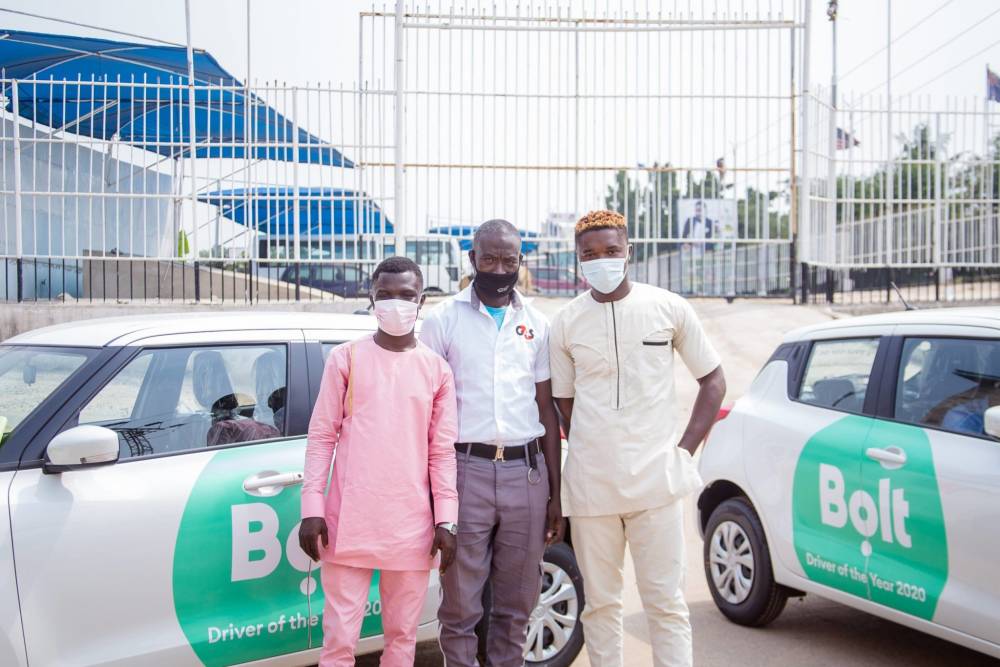
Bolt is spearheading a lease-to-own expansion strategy for Nigerian motorists
Bolt is spearheading a lease-to-own expansion strategy for Nigerian motorists
Over 90 percent of the population in Nigeria is unable to purchase a car due to a lack of purchasing power among middle-class citizens, combined with limited or no access to vehicle financing. Furthermore, the vast majority of taxis and public transportation buses in Nigerian cities are leased by drivers, who are required to pay rental fees to the owners on a regular basis to maintain their vehicles.
Because of this, it is likely that ride-hailing companies such as Uber and Bolt, which plan to launch in Nigeria, will experience driver-partner shortages, particularly if they intend to service the country's major cities.
Bolt launched a vehicle financing program earlier this year, allowing drivers to purchase their own vehicles over a period of time that is more convenient for them. Drivers can purchase a car or motorcycle with low monthly payments and no interest for a period of approximately four years through the program.
In a statement at the time, Bolt's Country Manager, Femi Akin-Laguda, stated that "as we expand our presence across the country, it is critical that we provide solutions that make working with Bolt more flexible and profitable for drivers."
According to Akin-Laguda, following a successful pilot phase, the company has partnered with Metro Africa Xpress (MAX), a Nigerian mobility company that also has a fintech component, to expand the program throughout the country.
MAX began as a delivery service that operated on motorcycles. In order to expedite delivery in Lagos, users could order pickup riders through the company's mobile app, which they could access through their smartphones. By 2017, MAX had expanded into the bike-hailing business, making it the first company in Nigeria to use this technology to its full potential. However, the Lagos government imposed restrictions on passenger motorcycles in February 2020, putting the company's expansion plans in the country's largest city in jeopardy of failure.
Guy-Bertrand Njoya, MAX's chief financial officer, explains in an interview with TechCabal that the company has been forced to refocus on its other mobility solutions as a result of the ban on electric vehicles. For example, in five Nigerian and Ghanaian cities, a subscription platform for low-to-zero emission vehicles is being developed. Credit and original equipment manufacturer (OEM) services are included in the subscription product, which is available to the platform's over 13,000 drivers.
The company's alternative credit-scoring technology will be used to provide access to proprietary performance and revenue analytics, which will be used to underwrite Bolt car loans for drivers as part of the partnership with Bolt.
According to Akin-Laguda, Bolt's preferred car financing partner in Nigeria is "MAX," a well-known vehicle subscription platform that "has the capacity to support a truly broad distribution of this type of partnership." Our approach and insight into how to achieve our goal of empowering drivers was a perfect match for their approach and insight into how to accomplish our desired proposition.
For the time being, the car financing program is only available to drivers in Lagos and Abuja, but Bolt intends to expand it to include all active drivers throughout Nigeria eventually.
A contract for up to 100 percent of the purchase price can be reached within 24 hours of signing up with Bolt, and this is true for both new and used cars. This is based on the assumption that drivers have provided all of the necessary information. In exchange for deducting a percentage of the weekly revenue generated while driving on Bolt, they can choose to repay their loans over a five-year period.
According to Akin-Laguda, "We want to strengthen our commitment to assisting those who use the Bolt platform in earning more and working at their own pace, whether they are full- or part-time." It is critical to our business operations that driver earnings continue to rise.
Drivers will benefit from Bolt's loan repayment process, which is more flexible than what is currently available on the market. Unlike Nigerian banks, where loan terms are frequently less than two years, the repayment period for Bolt's loans is between two and five years. MAX, which is backed by Yamaha, plans to broaden its financing options in the long run to include financing for electric vehicles.
Along with enabling drivers to take advantage of MAX's value-added services, the partnership is expected to broaden the reach of the lease-to-own framework to include more e-hailing drivers as well. Among the examples of this are licenses and permits, as well as insurance, health coverage, and various other financial products.
Nigeria's low rate of vehicle ownership is consistent with the rest of Africa, which has the world's lowest per capita vehicle ownership rate, according to the World Bank.
With more than one billion people living on the continent, and the majority of them lacking access to vehicle financing, Africa's new vehicle sales fell short of the United States' total of more than 17 million vehicles sold in 2019.

